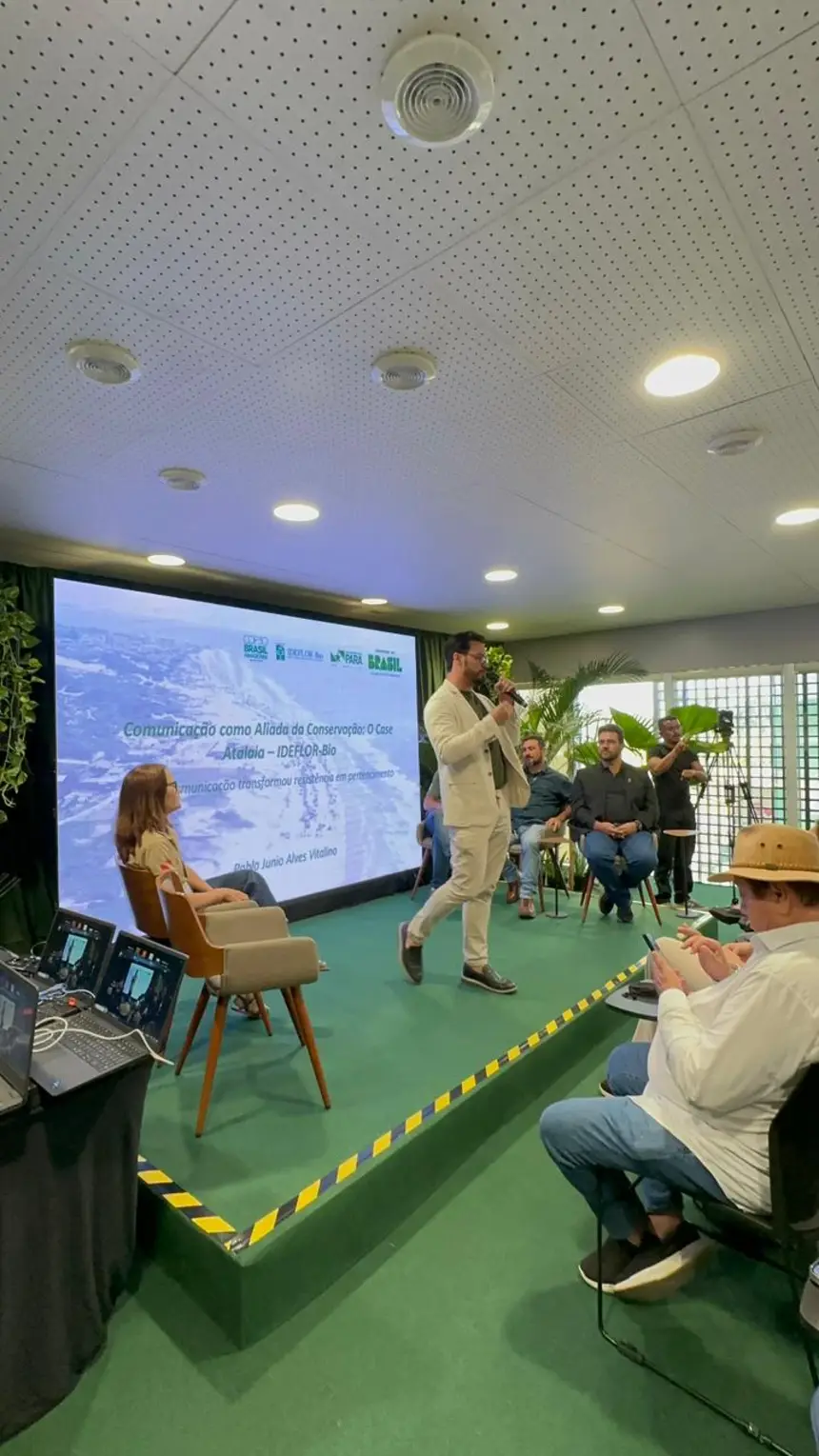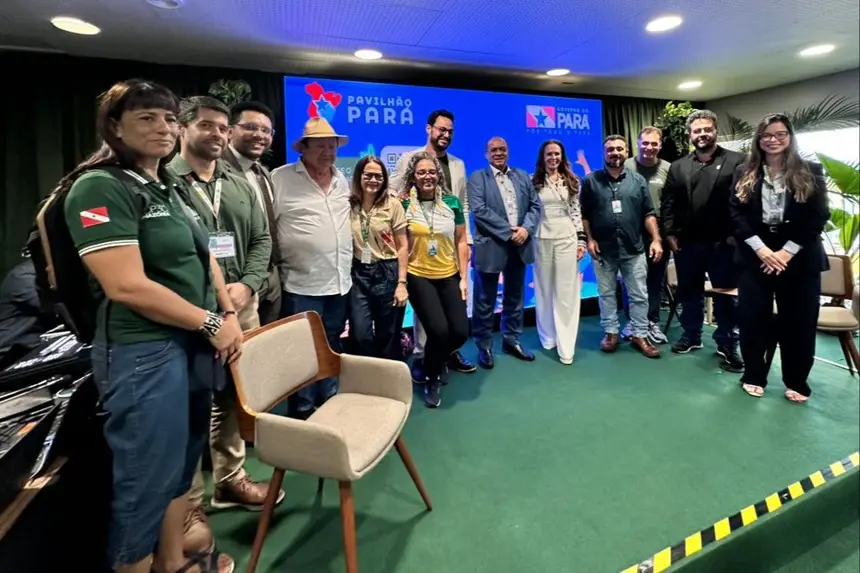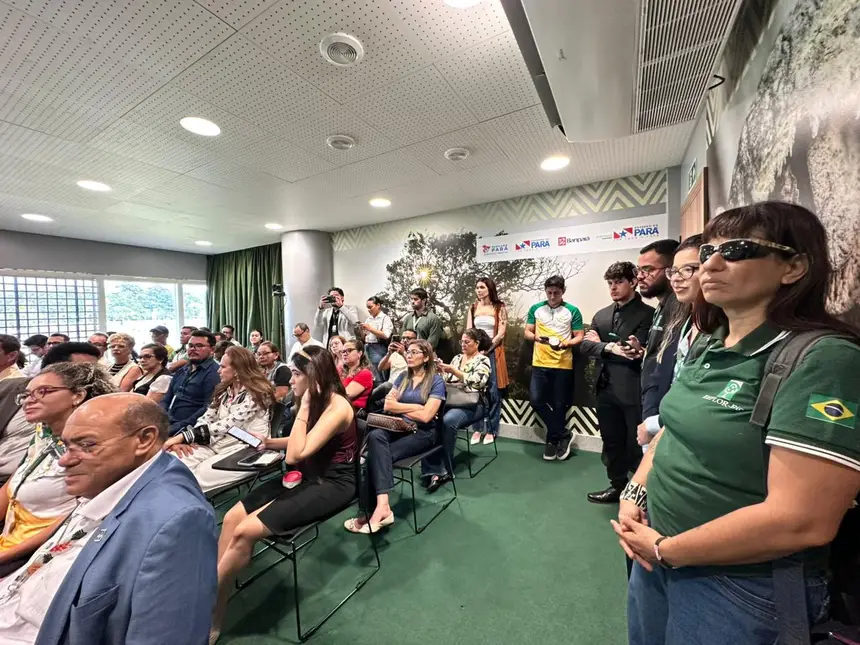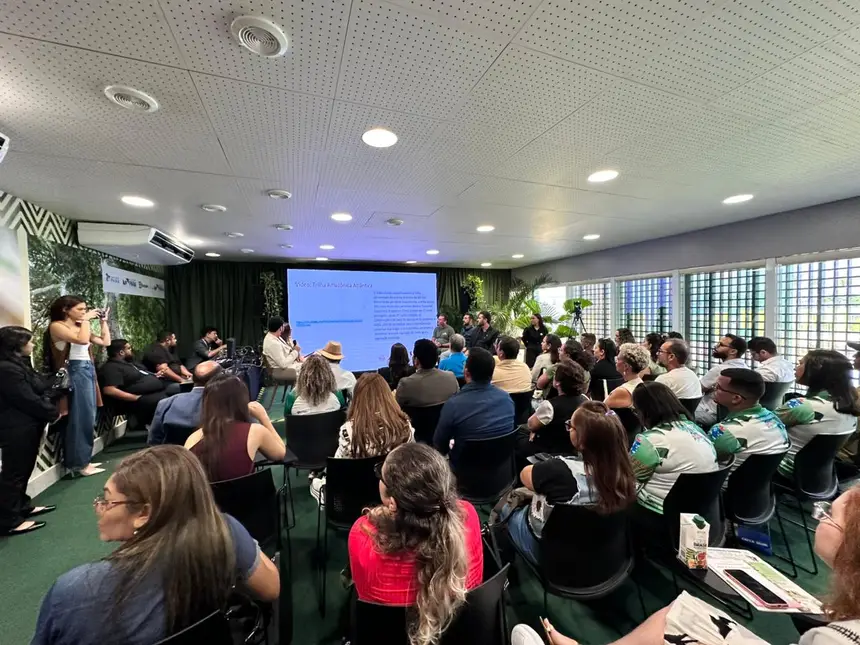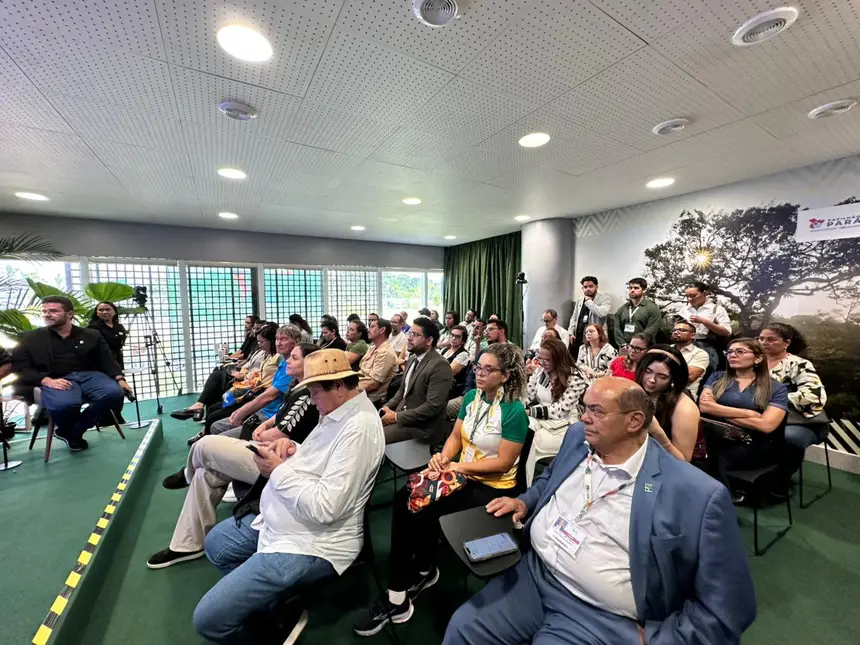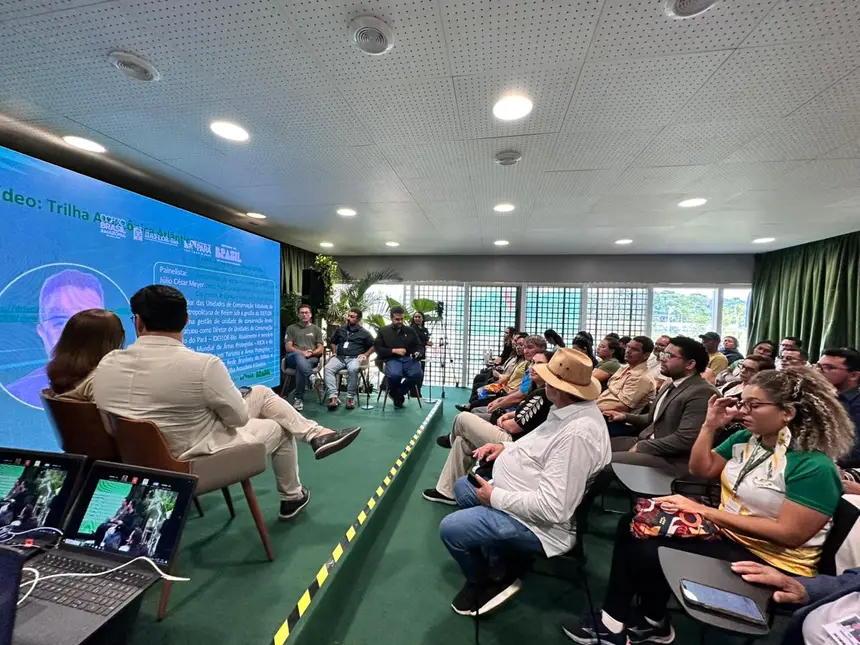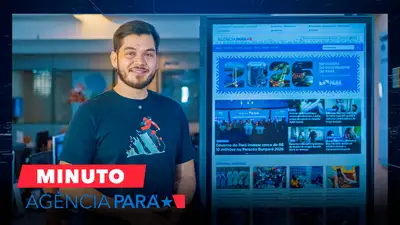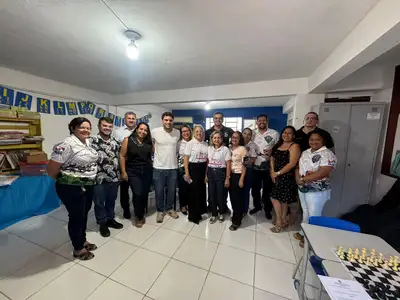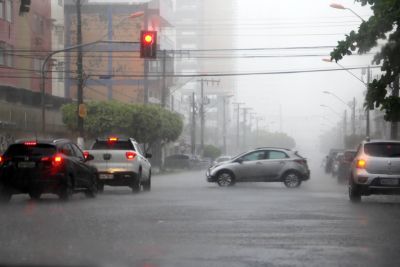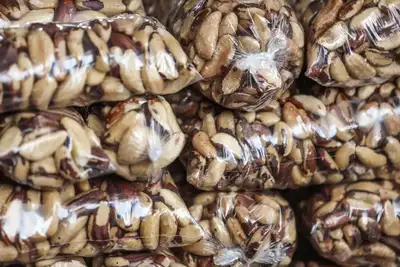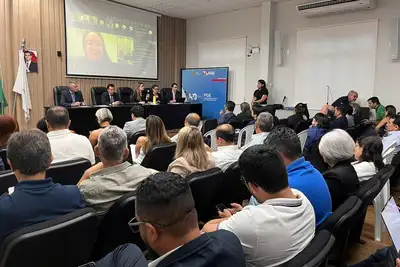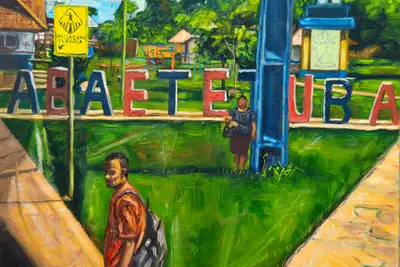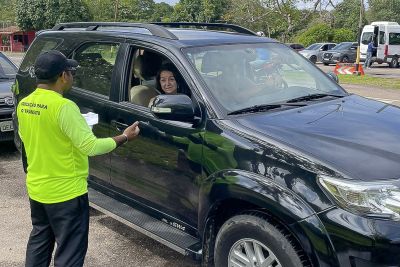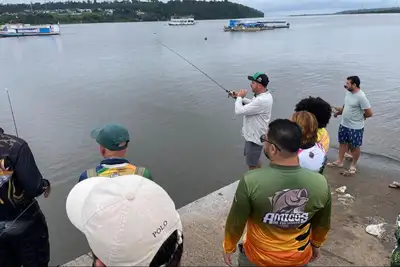Ideflor-Bio presents first panel at the Pará Pavilion during COP30
The exhibition, held this Monday (10), showed that conservation is not just about protecting forests, but also about connecting communities, history, tourism, and science.
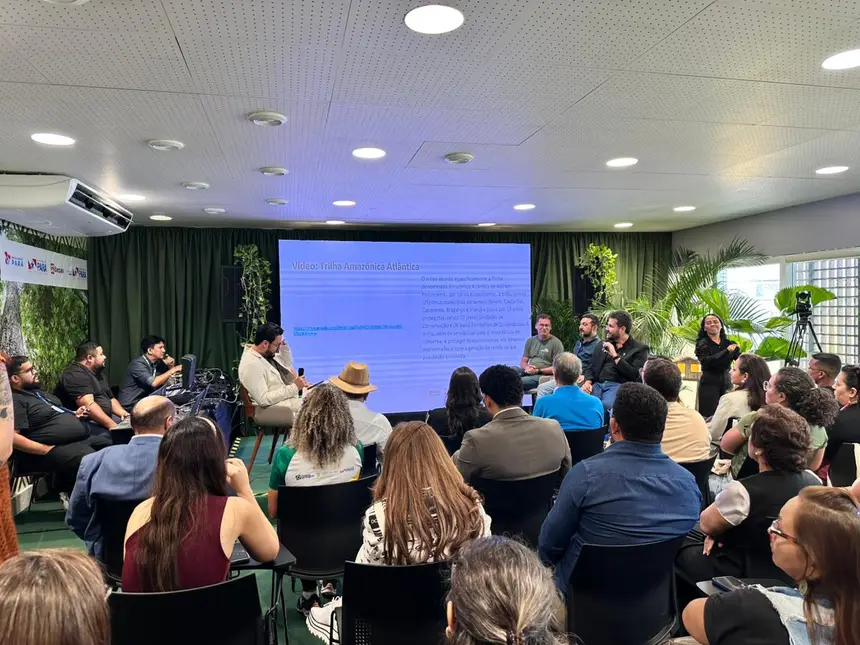
The first panel presented by the technical team of the Institute for Forest Development and Biodiversity of Pará (Ideflor-Bio) energized the Pará Pavilion in the Green Zone of COP30, bringing to the center of international discussions an essential agenda for the Amazon: the role of conservation units in climate balance and communication as a tool for belonging and social transformation. The exhibition, held this Monday (10), showed that conservation is not just about protecting forests, but also about connecting communities, history, tourism, and science.
With the theme "The Conservation Units in the Climate Balance of the State, with an emphasis on ecological trails as a conservation strategy and public policy and the institutional and community communication of these practices," the panel was moderated by journalist and communication advisor of Ideflor-Bio, Pablo Allves, and brought together specialists who work directly in environmental management, ecotourism, and community engagement.
Among the panelists were: Jocilete Ribeiro, manager of Sociobiodiversity at Ideflor-Bio; Magnaldo Meneses de Andrade, Secretary of the Environment of Concórdia do Pará; Júlio César Meyer, manager of the Administrative Region of Belém at Ideflor-Bio and president of the Brazilian Trails Network; and Bruno Borges, director of the company Amazônia Aventura and president of the Amazon Atlantic Trail.
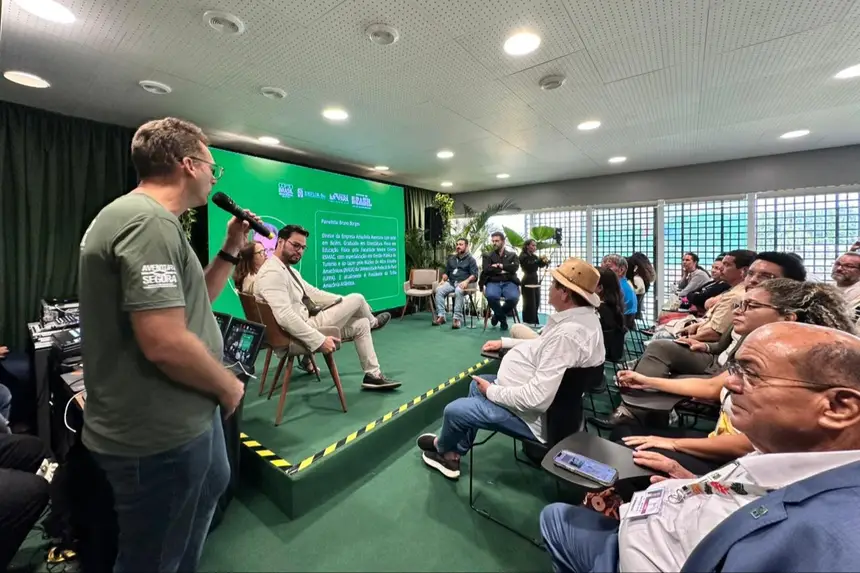
Support for management - The presentation began with Jocilete Freitas highlighting Ideflor-Bio's role in creating and strengthening municipal conservation units. Under the coordination of the Biodiversity Management Directorate (DGBio), the Institute has already supported the creation of 42 municipal conservation units, with five more in the implementation process, consolidating new areas to preserve springs, fauna, flora, endangered species, and spaces for environmental education. "Each unit created is a territory of hope. It is a public policy that is born to ensure standing forests, protected water, and quality of life. Conservation is not just technical; it is about caring for people and the future," said Jocilete.
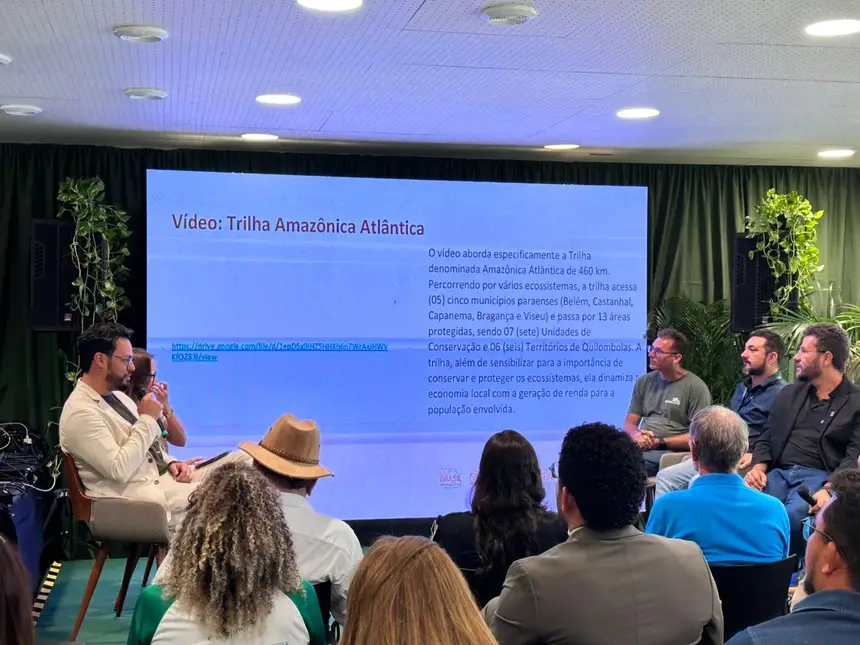
The Secretary of the Environment of Concórdia do Pará, Magnaldo Andrade, presented the municipality's experience, which in recent years has structured environmental actions, created the first Municipal Forest Pedro Desengrini, invested in ecological trails, reforestation, and outdoor environmental education. For him, environmental policies only consolidate when they reach the population. "When the community walks the trails, plants trees, and learns about biodiversity, they understand that preserving is a daily act. This is how sustainability stops being a discourse and becomes culture," he emphasized.
Ecotourism - Júlio César Meyer, a national reference in the management of protected areas and the long-distance trails movement, presented the advances of the Amazon Atlantic Trail, a 460 km route that crosses five municipalities and 13 protected areas. The trail boosts tourism, generates local income, and strengthens the connection between nature and people. Meyer reinforced that trails are public conservation policies. "With every step, people realize that the forest is alive, grand, and necessary. Trails create belonging and transform visitors into defenders of the territory," he said.
The panel also gained a perspective focused on the dynamics of ecotourism, presented by Bruno Borges, director of Amazônia Aventura. The company operates within conservation units with activities such as trails, rappelling, zip-lining, and climbing, connecting leisure, culture, and environmental protection. Borges argued that nature tourism needs to be allied with climate and the forest. "The future of tourism is regenerative. If it does not contribute to conservation, it makes no sense to exist. The Amazon is the great protagonist of this new model," he emphasized.
Communication - Closing the panel, journalist Pablo Allves presented the Atalaia case, a strategic communication action developed by Ideflor-Bio after the interdiction of a turtle nesting area in Salinópolis. Previously rejected by the population and local media, the measure became an example of pride after educational campaigns, guided tours, and actions to engage with residents and tourists. "Communication changed everything. When science became history, when the blockade became life, people understood why to protect. Today, the community celebrates each nest and each hatchling that runs to the sea," Pablo stated.
The experience showed how communication has shifted from being merely informative to becoming a strategy for building collective awareness. In two years, the initiative transformed criticism into popular support, expanded positive media coverage, and made the protection of nests a symbol of belonging. Inspired by the success, Ideflor-Bio is already preparing new actions for 2026, involving communities in the state parks of Monte Alegre and Serra dos Martírios-Andorinhas.
For the president of Ideflor-Bio, Nilson Pinto, bringing the Institute's first panel to the Pará Pavilion at COP30 is to show the world that Pará builds environmental policies from the forest and the people. Conservation units are more than protected areas — they are spaces of knowledge, tourism, belonging, and social transformation. Our commitment is to ensure that the Amazon remains alive, inspiring sustainable development and hope for future generations," he emphasized.


